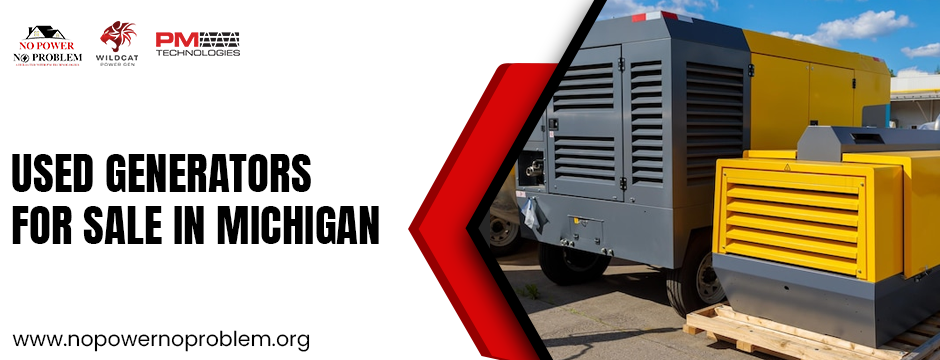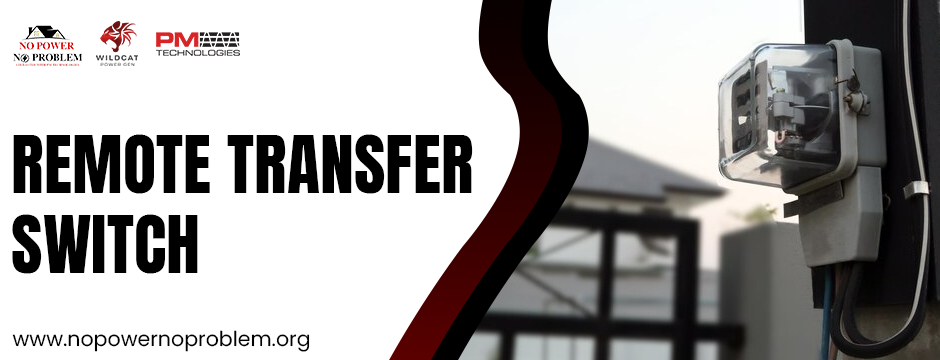Michigan’s weather is famously unpredictable, ranging from hot, humid summers to harsh, snowy winters. These extremes often lead to unexpected power outages, which can disrupt daily life, cause damage to your home or business, and create safety concerns. For many residents and business owners, a backup generator is an essential investment to maintain comfort, security, and operational continuity during outages.
If you’re considering buying a generator but want to save money, purchasing a used unit can be an excellent option. There are many used generators for sale in Michigan, and with careful selection, a used generator can provide reliable backup power for years to come. However, buying used requires more caution than buying new to ensure you get a unit that meets your needs safely and effectively.

This guide outlines the key factors you should consider when buying a used generator in Michigan so you can make a confident and informed decision.
Understand Your Power Needs First
The most important step before purchasing any generator, new or used, is to determine exactly what you need it to power. Do you want to keep your entire home running, including heating and air conditioning, or just a few essential appliances like your refrigerator, lights, and sump pump?
- Calculate Your Power Load: Add up the wattage requirements of the appliances and systems you want to run during an outage. This will tell you the minimum generator size needed.
- Future-Proof Your Choice: If you plan to add equipment later or want the flexibility to power more devices, consider getting a unit with a bit more capacity.
- Portable vs. Standby: Portable generators can power select appliances and are typically less expensive, but standby generators are permanently installed, start automatically when power fails, and can power your entire home or facility.
Knowing your power needs upfront narrows down the search and prevents you from overpaying for too large a unit or buying one that won’t provide enough power.
Inspect the Physical and Mechanical Condition Closely
When buying any used equipment, condition is everything. Since you’re likely purchasing from a dealer or private seller rather than a manufacturer, it’s critical to perform a thorough inspection:
- Exterior Condition: Look for signs of rust, corrosion, dents, and oil or fuel leaks. These can indicate neglect or exposure to harsh conditions.
- Engine Hours: Like a car’s odometer, generators have an hour meter showing total run time. Lower hours usually mean less wear, but also verify how those hours were used—frequent maintenance runs count differently than continuous use.
- Fuel System and Battery: Check fuel tanks for corrosion or contamination. Inspect the battery for age and condition, as it’s critical for starting standby generators.
- Run a Test: If possible, start the generator and let it run for a few minutes. Listen for abnormal sounds such as knocking, sputtering, or excessive vibration. Check exhaust for unusual smoke colors or smells.
- Maintenance Records: Request any available service and repair history. Regular maintenance and timely repairs are signs of a well-cared-for unit.
Never skip this step — a used generator with hidden issues can become a costly problem very quickly.
Know Your Fuel Options and Availability
Generators run on various fuels, each with pros and cons that affect your choice:
- Natural Gas: Convenient for homes already connected to a gas line, clean-burning, and available 24/7.
- Propane: Popular for standby generators, easy to store, and has a long shelf life.
- Diesel: Often used for heavy-duty commercial generators, diesel has high energy density but requires proper storage and handling.
- Gasoline: Common in portable generators but less ideal for standby use because gasoline has a shorter shelf life and needs frequent replacement.
Make sure the used generator you’re considering matches the fuel type you can reliably access and store safely in Michigan. Fuel availability is especially important in winter months when propane deliveries may be slower.
Verify the Presence and Compatibility of a Remote Transfer Switch
A remote transfer switch is an essential component for any standby generator system. This switch automatically transfers your home or business’s power source from the utility grid to the generator when an outage occurs, and back again once power is restored.
When buying a used generator, confirm:
- Whether a compatible remote transfer switch is included or if you will need to purchase and install one separately.
- The switch meets current electrical codes and safety standards in Michigan.
- The installation of the transfer switch will be handled by a licensed electrician experienced in generator systems.
The remote transfer switch is crucial because it prevents backfeeding electricity into the power grid — a dangerous situation for utility workers and your equipment. It also allows for a seamless transition without manual intervention, ensuring your power stays on during outages.
Consider Noise Levels and Local Regulations
Michigan communities often have noise ordinances and regulations about generator operation, especially in residential areas. Since you may be running your generator for hours or even days during extended outages, noise level is a practical consideration.
- Check the decibel rating of the used generator.
- Look for noise-reducing features such as insulated enclosures or mufflers.
- Ask about the typical operational noise during startup and continuous running.
Choosing a quieter unit can improve neighborhood relations and comply with local rules. If in doubt, consult your local municipality about any generator-related restrictions.
Understand the Generator’s Age and Usage History
The age of a generator affects its lifespan, performance, and maintenance needs. While many generators can last 15 to 20 years or more with proper care, an older unit may require more repairs.
- Ask for the manufacturing date and model year.
- Inquire about how often the generator was used and under what conditions.
- Find out if it was regularly maintained or stored for long periods.
Heavy use or improper storage can accelerate wear, so factor the age against condition and price. A relatively newer generator with good maintenance might be a better buy than an older unit that looks well cared for but may have hidden issues.
Evaluate Installation and Maintenance Considerations
A used generator requires proper installation and ongoing maintenance for reliable operation.
- Installation: If your generator is a standby model, you’ll need professional installation of the unit, the remote transfer switch, and possibly upgrades to your home’s electrical system.
- Maintenance: Regular upkeep — including oil changes, battery checks, filter replacements, and exercise runs — keeps your generator ready for emergencies.
Ask sellers whether installation services are offered or if they can recommend qualified installers in Michigan. Also, factor in ongoing maintenance costs when budgeting for your generator purchase.
Check Warranty, Return Policies, and Dealer Reputation
Used generators often come with limited or no warranty coverage. However, some dealers may offer short-term warranties or service plans.
- Verify if any warranty remains or if the seller offers a satisfaction guarantee.
- Review return policies and conditions.
- Choose dealers or sellers with good reputations, customer reviews, and transparent communication.
Buying from a reputable dealer reduces risk and provides access to professional support if issues arise.
Understand Michigan’s Permit and Safety Requirements
Generator installation in Michigan usually requires permits and must comply with electrical and building codes.
- Confirm with your local building department about permits for generator installation.
- Ensure your electrician follows all safety and inspection guidelines.
- Verify your generator and transfer switch installation meets Michigan safety standards.
Proper permitting protects you legally and ensures your generator is safe for you and your neighbors.
Why Choose Us at No Power No Problem?
When looking for used generators for sale in Michigan, choosing a trusted, local expert is key. At No Power No Problem, we understand Michigan’s unique weather challenges and power reliability concerns. We carefully inspect and service every used generator we offer, ensuring it meets strict quality and safety standards.
Our experienced team will assess your home or business power needs and help you select the right generator size and fuel type. We also provide professional installation services, including setup of compatible remote transfer switches for safe and seamless power transfer during outages.
But we don’t stop there. We offer 24/7 maintenance and emergency service to keep your generator running smoothly year-round, so you never have to worry about unexpected blackouts. With us, you get peace of mind, reliable backup power, and personalized service every step of the way.

Conclusion
Buying a used generator in Michigan can be a cost-effective way to protect your home or business from power interruptions. To make a smart purchase, carefully evaluate your power needs, thoroughly inspect the generator’s condition, and confirm fuel compatibility. Don’t forget the importance of a properly installed remote transfer switch for safety and convenience.
Consider noise levels, local regulations, the generator’s age, and installation and maintenance costs. Buy from reputable dealers who offer warranties or guarantees and understand Michigan’s permitting requirements to ensure your investment pays off in reliable backup power when you need it most.
With the right knowledge and expert guidance, a used generator can provide years of dependable service, keeping your Michigan home or business powered through any outage.
